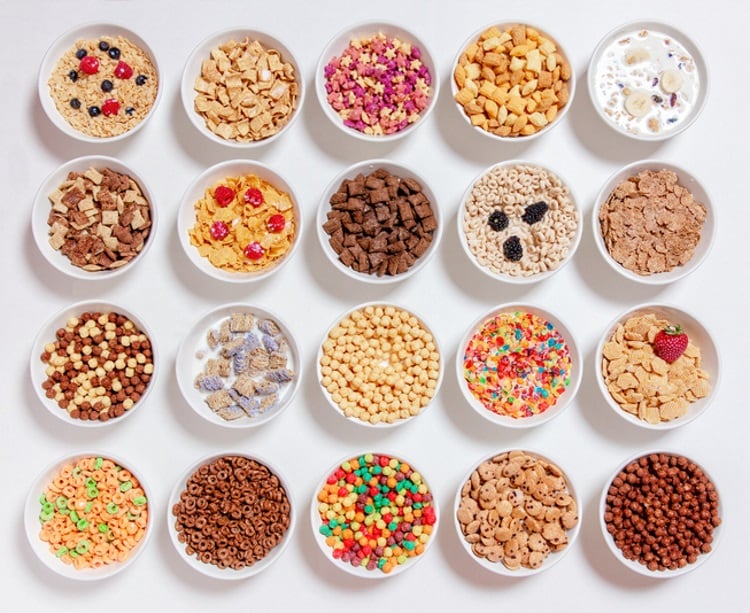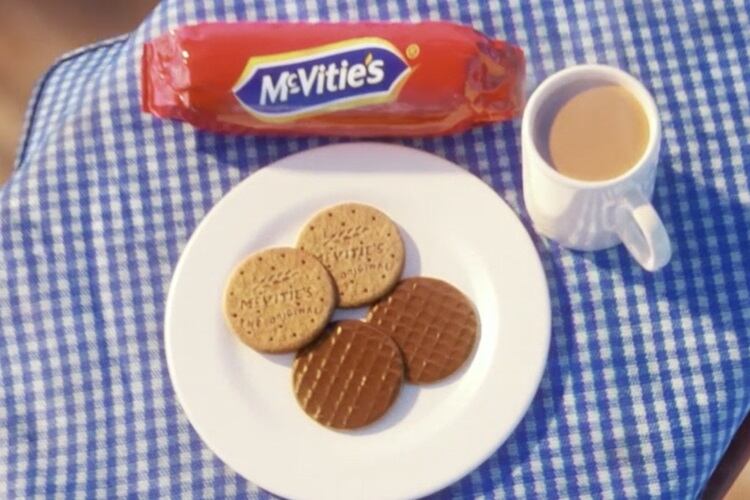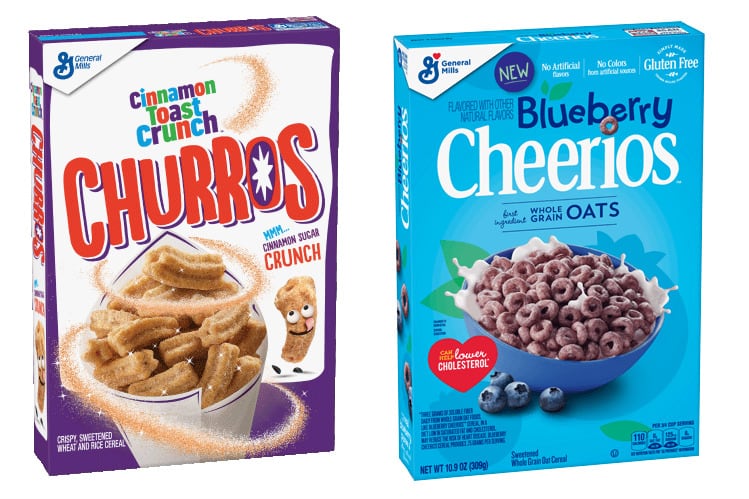In the UK, there is still much to be done to achieve Public Health England’s (PHE) target of a 20% reduction by the end of this year. The call is much the same on the other side of the pond.
A 2019 analysis by Action on Sugar – conducted in collaboration with the Food Foundation as part of the Broken Plate Report – found some cereals on British supermarket shelves to contain as much as 40% sugar. Only two products surveyed were low in sugar and salt.
“Breakfast cereals can be a healthy choice, as they contain fibre and are fortified with vitamins and minerals; however, a study by Action on Sugar in 2017 showed that the sugars content in breakfast cereals has been steadily high since 1992, despite the ever-increasing evidence linking sugars with dental caries, obesity and type 2 diabetes,” Holly Gabriel, Action on Sugar nutritionist told BakeryandSnacks.
There’s room for both
Rather than radically stripping sugar from their offerings, producers are upping the innovation ante to cater for both the carefree and the health-conscious shopper.
For example, General Mills recent collaboration with The Hershey Company to release Hershey’s Kisses, Reese’s Puffs Big Puffs and Jolly Rancher – each containing 10-12g of sugar per 1 cup serving: nearly half the recommended daily amount for children. On the other hand, it recently announced its newest cereal, Morning Summit, a whopping $13-a-box whole gain cereal lightly sweetened by dried cranberries and cherries.
“Our strategy to drive compelling cereal growth is centred on launching compelling innovation that offers taste, convenience and health benefits while investing in brand building that engages consumers and gives them a reason to walk down the aisle,” said Jeff Harmening, chairman and CEO of General Mills, at the annual Consumer Analyst Group of New York (CAGNY) investor conference.
BakeryandSnacks also asked Mike Siemienas, spokesperson for General Mills, why the cereal giant decided to go this route?
He said, “We believe that our cereals have the right amount of each ingredient providing for great tasting products. General Mills has more than 100 varieties of cereals, including lower sugar and sweetened options, and consumers can choose the cereal that is best for them and their family.
“Research has shown that children who eat cereal do not have higher intakes of added sugar in their diet when compared to kids who don’t eat cereal.
“For kids who eat cereal, they have overall better diets, meaning they are taking in more key nutrients and food groups that are needed for good health including whole grain, calcium, vitamin D and fibre.
“When it comes to nutrient density, cereal is truly hard to beat. It is the number one source of several key vitamins and minerals for all Americans at breakfast and is a food that can be paired with nutrient dense foods, like fruit and milk. In fact, for kids that eat cereal, 57% of milk consumption is with cereal.”
He noted General Mills has steadily reduced sugar in its products for the past decade.
“We continue to look for ways to further reduce sugar in our cereals where possible without compromising taste or using ingredients we know parents don’t want in their foods, like high fructose corn syrup. We are proud that all sugar reductions like these have been made while continuing to maintain the great taste of our cereals.”
A spokesperson for Cereal Partners Worldwide (CPW) – the manufacturer of Nestlé cereals in the UK – told BakeryandSnacks that, it, too, continually strives to make breakfast better.
“Sugar and salt reduction, alongside increasing the wholegrain content in our products, has been a priority for CPW for many years. Compared with 2003 levels, Nestlé Cereals sold in 2018 contained 585 million fewer teaspoons of sugar, and between 2010 and 2018, we have reduced average sugar content by 25%.”
She added the company’s progress was recognised in Public Health England’s second year progress update on sugar reduction.
“This underlines our commitment to working towards the PHE sugar reduction guidelines showing that Nestlé Cereals have reduced sugar by 7% between 2015 and 2018 following PHE’s methodology.”
The company is hoping for further reductions to be reflected in the third year and final fourth year report, but concedes “there is always more that we can do'’.
Kellogg’s has also cast critical eye on its sugar content, axing kid-targeted offerings like Ricicles and unveiling alternatives like its ‘no added sugar’ WK Kellogg’s range and Reduced Sugar Frosties (30% less sugar than the standard cereal, which packs 37g of sugar per 100g).
The Battle Creek, Michigan-based manufacturer is not planning to make changes to the latter variant, though, noting that growth is not coming from kids, but from young adults who do not have kids – and underscoring General Mills’ methodology of having a variety of cereals to choose from.
The revenue tells the tale
According to IRI data for US multi-outlet sales for the 52 weeks ending January 26, 2020, the candy-style offerings are pulling in the big bucks.
For instance, General Mills’ top selling-cereals for the year included Honey Nut Cheerios (13.8g sugar/39g serving) with over $480k in revenue; Lucky Charms (12.6g sugar/35g serving) realising over $310k; and Reese’s Puffs (13.8g sugar/39g serving) serving up almost $130k.
Kellogg’s top-selling sweet offerings saw a similar picture: Frosted Flakes (11.1g sugar/39g serving) brought in over $420k; Froot Loops (12.1g sugar/29g serving) realised over $270k; and Raisin Bran – often perceived a healthier choice but packed with 18.5g of sugar/59g serving – clocking up over $170k over the year.
Granted, some of the makers healthier choices are among the pack, like General Mills Cinnamon Toast Crunch (6g sugar/28g serving – 25% less sugar) raking in over $400k, and Kellogg’s Special K (3.8g sugar/31 g serving) pulling in over $180k for the period.
Source: IRI, a Chicago-based market research firm (@iriworldwide)
Breakfast cereals may well not meet PHE’s sugar reduction target by the end of this year, but there is definitive proof that producers are taking it seriously.
The prospect of halving childhood obesity by 2030 is achievable, as long as we maintain the momentum.
A UK Department of Health and Social Care spokesperson told this site, “We are committed to halving childhood obesity by 2030 and making it easier for families to make healthier choices.
“It’s encouraging to see companies taking action to tackle this serious issue and supporting our world leading childhood obesity plan.
“Our robust policies have already reduced the amount of sugar in soft drinks and invested millions promoting physical activity in schools, and we will continue to assess the evidence base on the effect of marketing and advertising on children.”





